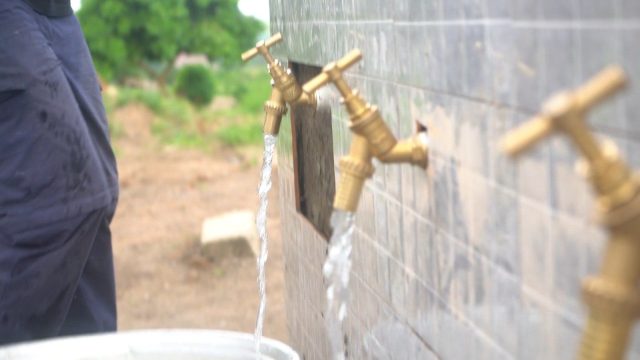Research conducted on the state of water services in the Western Region, under the Rural Water Utilisation initiative, has shown that 12 per cent of the population lacked adequate access to water supply services.
Also, more than 1.8 million, representing 88 per cent, out of the two million population have access to either a hand pump or a pipe system.
Out of the 999 pipe schemes, 887 were manned by either communities or private entities.
The study showed that nine out of every 10 hand water pumps were either managed by private, community, institutions or some without a management team at all.
Aggregating, the Region has 50 per cent mechanised, 20 per cent hand pumps and 30 per cent pipe schemes.
The Rural Water Utilisation Project funded by the Conrad Hilton Foundation, is supporting the Community Water and Sanitation Agency (CWSA) in its growth as a professionalised public utility in the country and playing a stronger regulatory advocacy role in rural water supply sub-sector.
The Ghana Statistical Service provided the right expertise in mapping data on water infrastructure and services in the 14 districts of the Western Region.
The research identified service delivery models, developed a database framework for collection, analysis, and updating information for the rural and small-town water sub-sector.
Basically, utility management in the sector was the direct responsibility of Ghana Water Company and CWSA, whilst the small water enterprises and other private entities also played a significant role.
The community management involved the management of water facilities by a community committee or volunteers – Water and Sanitation Management Teams (WSMTs)
Mr. Mohammed Ibrahim Adokor, the Director, Planning and Investment of the CWSA, said limited mechanised systems accounted for 90 per cent in the 14 districts with 71 per cent of all water systems over ten years old.
The situation had resulted in numerous breakdowns and nonfunctional systems, mainly because of poor maintenance with issues of non-maintenance prevalent in STMA, EKMA and Wassa Amenfi Districts.
About 802 hand pumps were discovered to be non-functional.
Also, water quality and testing mechanisms needed some significant improvement as most facilities, particularly ones provided by associations and businesses, while 40 per cent of these facilities were tested only at the time of construction.
The activities of private drillers were also noted as key factors in the area of water quality testing.
The greatest challenge in affecting quality, availability of supply and functionality hinged on the fact that most communities had often paid little or nothing at all for the usage of rural water services and thus putting a huge financial burden on the government.
Mr. Henry Asangbah, the Western Regional Director of the CWSA, expressed his gratitude to the Conrad N. Hilton Foundation, for supporting CWSA in its growth as a public utility in the rural water sub-sector.
He said the CWSA in 2017 initiated a policy reform to expand its mandate to include the management of piped water systems in rural areas, and thus, in effect became a rural utility.
This would ensure the facilitation of safe water supply to Rural Communities and Small Towns through a decentralised Service Delivery Approach.
Mrs. Vida Duti, the Country Director of IRC Ghana, said the development of CWSA internal organisational change management process to drive the transition towards becoming a rural utility and operational efficiency was critical to realising the tenets of the reforms.
She said such laudable initiatives could not be achieved in any void but with stronger stakeholder support, which would ultimately help to mainstream relevant data on rural water supply into national planning processes.
The report also established inventory on water infrastructure with technical information, service levels, and key performance data in rural water service delivery in the 14 districts of the Western Region.















